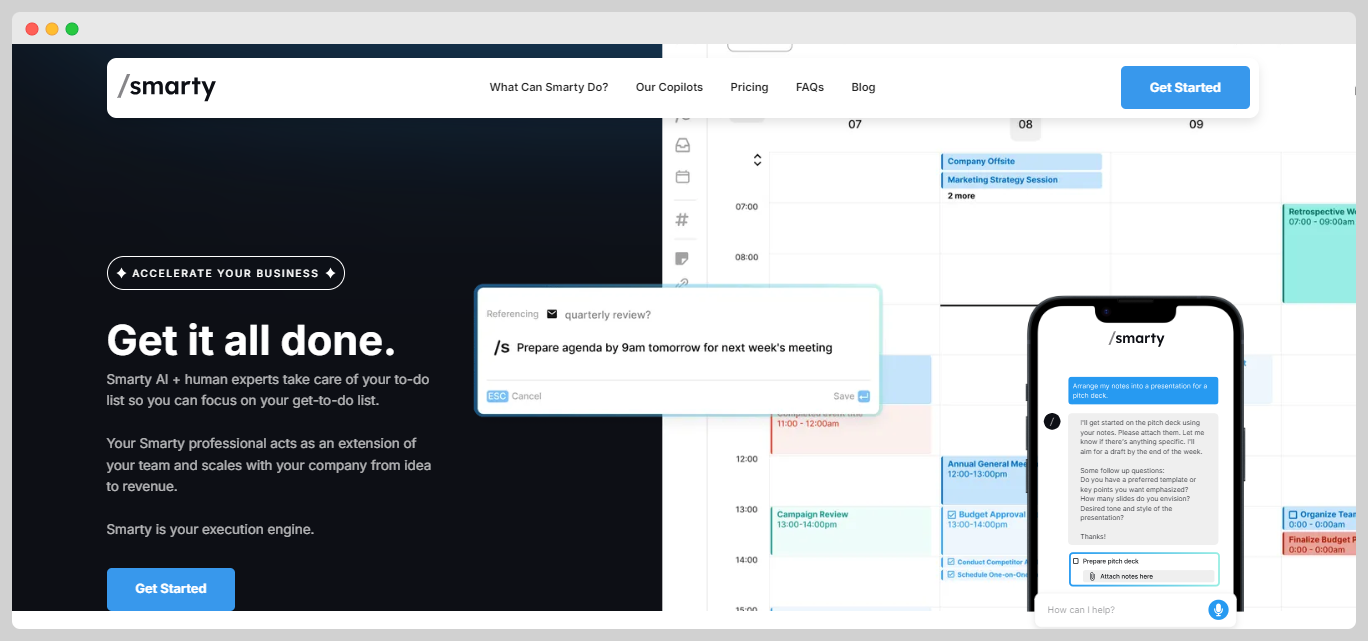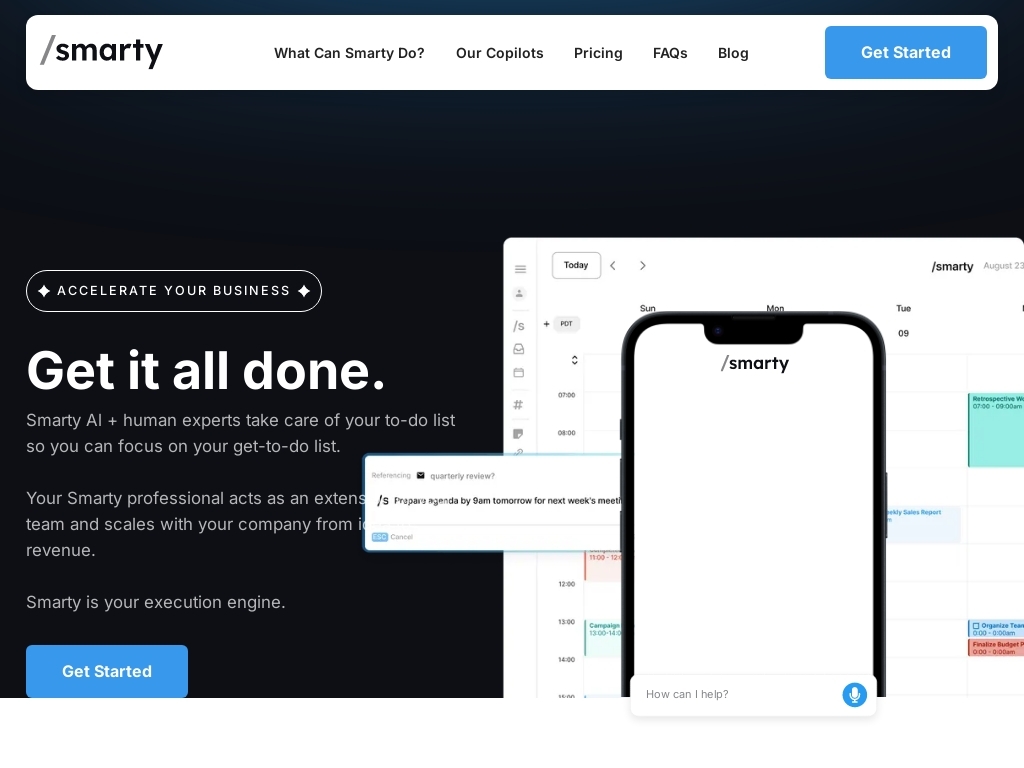How Solo Founder Denzil Eden Raised $2.5M for AI Productivity Tool Smarty
Who is Denzil Eden?
Denzil Eden, the founder of Smarty, started coding at age eight in the Bay Area and later earned degrees in computer science and AI from MIT, followed by an MBA from Harvard. Before founding Smarty, she gained valuable experience as a Product Manager and Software Engineer at Microsoft, which honed her technical expertise and sparked her entrepreneurial spirit.
What problem does Smarty solve?
Smarty solves the overwhelming task management and scheduling headaches by acting as a digital assistant, automating scheduling and managing time-intensive tasks so people can reclaim their day for more important activities.


How did Denzil come up with the idea for Smarty?
During Denzil Eden's time as an MBA student, she found herself swamped with academic commitments, extracurricular activities, and post-graduation planning. This hectic pace made her wish for a solution to automate some of her load. Her background in AI and software hinted at a potential tech solution, leading her to conceive Smarty as an AI-powered chatbot for personal use.
Initially aiming to alleviate her own scheduling woes, Denzil's vision expanded as she explored its possibilities, realizing its potential as a productivity tool for others. She conducted...
Disclaimer: The initial draft of this article was compiled by the Starter Story team based on publicly available interviews, podcasts, and other content from the founder. See the sources we used here.









